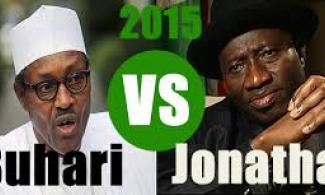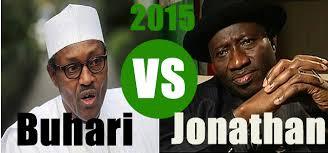
When private wealth is employed to finance political campaigns, political equality is put at risk. Paying for electoral campaigns with individual donations places wealthy individuals in a position to exercise greater political influence than those with fewer resources.

Elections across the world over are not cheap ventures. It requires time, human capital and intellect while money is required to reach out to the electorate. For this reason, politicians focus a lot of attention on raising money and resources needed to do meaningful campaigns. Political financiers therefore merge as investors who will get access to the treasury and public funds after the elections.
Recent electioneering activities have shown today's campaigns are so expensive that often only the wealthy or those willing to accept the strings attached to large campaign contributions can afford to run for public office. In Nigeria, opportunist politicians and political parties, especially the incumbents that control the public resources, seem to use or mismanage taxpayers’ funds and convert them to campaign funds.
In civilized societies, elected officials are supposed to answer to "we the people” but not in Africa and especially not in Nigeria. In Nigeria, elected officials answer to their godfathers, those who fund their elections. After funding the election, they expect returns to their friends, political appointments and pecuniary rewards after the candidate they funded wins. In other words, as a potential godfather invests his resources to produce a candidate for electable positions, the candidate is under obligation to make returns. We can see the numerous consequences this act has on electoral credibility and the socio-economy of the country.
Now, the adverse rob-off of this venture to the citizens of Nigeria, who are the electorates, is the major concern. After citizens have sacrificed their votes to make politicians win elections, infrastructural developments such as good roads, medical facilities, schools, power supply, etc. that will benefit those citizens, will have to wait or be in short supply while the politicians embark on a recouping spree of their financial investments and that of their godfathers.
The democratic, ethical and financial issues involved in the electoral process are important to any assessment of the state of democracy. Therefore, to avoid the brazen money politics in Nigeria, it is necessary for the government to become the major source of funding for elections. Where both the rich and poor will have equal opportunity to contest, as long as they qualify with other measurable indexes that don’t allow for candidates to usurp the entire strengths of an electoral contest. Because when going by who is richer, many qualified, reputable and credible candidates will never get the opportunity to be elected. That will also overshadow the importance of letting the best candidates emerge.
When private wealth is employed to finance political campaigns, political equality is put at risk. Paying for electoral campaigns with individual donations places wealthy individuals in a position to exercise greater political influence than those with fewer resources. Looking up to public financing in several ways will ensure that public financing increases the pool of candidates willing and able to run for state legislative office. We understand that politicians certainly need votes and money to win elections and re-elections, but they also need to understand that an individual’s vote carries an expectation that the candidate should look out for constituents’ interests if elected. A campaign contribution may carry an expectation that the money will get repaid in the form of favorable legislation, less stringent regulations, political appointments, government contracts or tax credit. But in a repeated situation where the candidates win elections, but rather convert the gains to personal loots and aggrandizement, is a critical indicator that money politics should be dissuaded in Nigeria.
As advocates and policymakers seek to respond to the growing levels of election spending by shoring up existing public financing systems and adopting new ones, it is crucial that they also highlight the time-tested anti-corruption interests that public financing advances. This is the only way that the process of accountability for the public financing is not abused. Few doubt that extraordinary Nigerians of ordinary means must have a meaningful ability to compete for elected office. Robust public funding programs open the door for qualified
Nigerians, who might not have personal wealth or high-powered connections, by giving them the means to launch competitive campaigns.Nigerians deserve the right to know. The fact that the federal, state and local governments share allocations each month and the fact those allocations are controlled by elected officials, compels the citizens and gives them the moral obligation to pry into how the incumbent politicians get and save money to finance their elections. We ask, are these public funds at their disposal meant for the incumbent politicians to run elections? Or are they meant to be used for developmental projects that will benefit the Nigerian citizens?
By Smart Chukwuma Amaefula
Senior Programme/Research Assistant
Centre for Social Justice, Abuja
+2347063859544